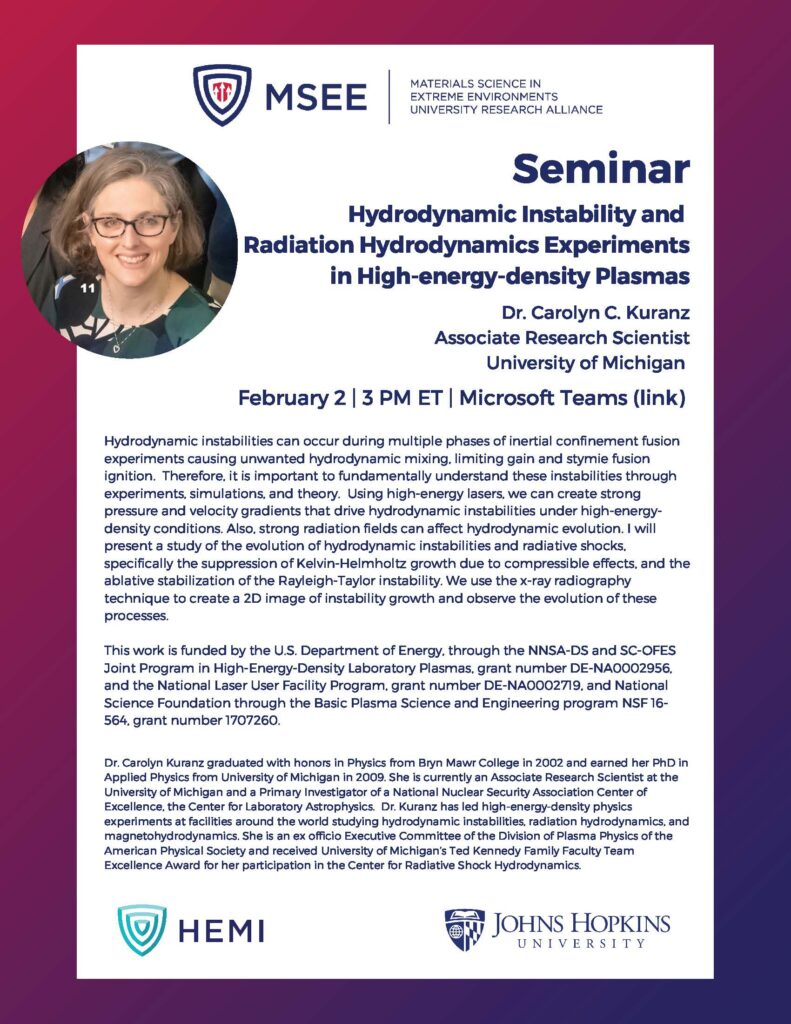February 2, 2021 @ 3:00 pm - 4:00 pm
Event Navigation
Join us for a seminar with Dr. Carolyn C. Kuranz, Associate Research Scientist at the University of Michigan, titled “Hydrodynamic Instability and Radiation Hydrodynamics Experiments in High-energy-density Plasmas.”
The seminar will begin at 3pm ET on February 2, 2021. It will be held via Microsoft Teams.
Abstract: Hydrodynamic instabilities can occur during multiple phases of inertial confinement fusion experiments causing unwanted hydrodynamic mixing, limiting gain and stymie fusion ignition. Therefore, it is important to fundamentally understand these instabilities through experiments, simulations, and theory. Using high-energy lasers, we can create strong pressure and velocity gradients that drive hydrodynamic instabilities under high-energy-density conditions. Also, strong radiation fields can affect hydrodynamic evolution. I will present a study of the evolution of hydrodynamic instabilities and radiative shocks, specifically the suppression of Kelvin-Helmholtz growth due to compressible effects, and the ablative stabilization of the Rayleigh-Taylor instability. We use the x-ray radiography technique to create a 2D image of instability growth and observe the evolution of these processes.
This work is funded by the U.S. Department of Energy, through the NNSA-DS and SC-OFES Joint Program in High-Energy-Density Laboratory Plasmas, grant number DE-NA0002956, and the National Laser User Facility Program, grant number DE-NA0002719, and National Science Foundation through the Basic Plasma Science and Engineering program NSF 16-564, grant number 1707260.
Speaker Bio: Dr. Carolyn Kuranz graduated with honors in Physics from Bryn Mawr College in 2002 and earned her PhD in Applied Physics from University of Michigan in 2009. She is currently an Associate Research Scientist at the University of Michigan and a Primary Investigator of a National Nuclear Security Association Center of Excellence, the Center for Laboratory Astrophysics. Dr. Kuranz has led high-energy-density physics experiments at facilities around the world studying hydrodynamic instabilities, radiation hydrodynamics, and magnetohydrodynamics. She is an ex officio Executive Committee of the Division of Plasma Physics of the American Physical Society and received University of Michigan’s Ted Kennedy Family Faculty Team Excellence Award for her participation in the Center for Radiative Shock Hydrodynamics.





